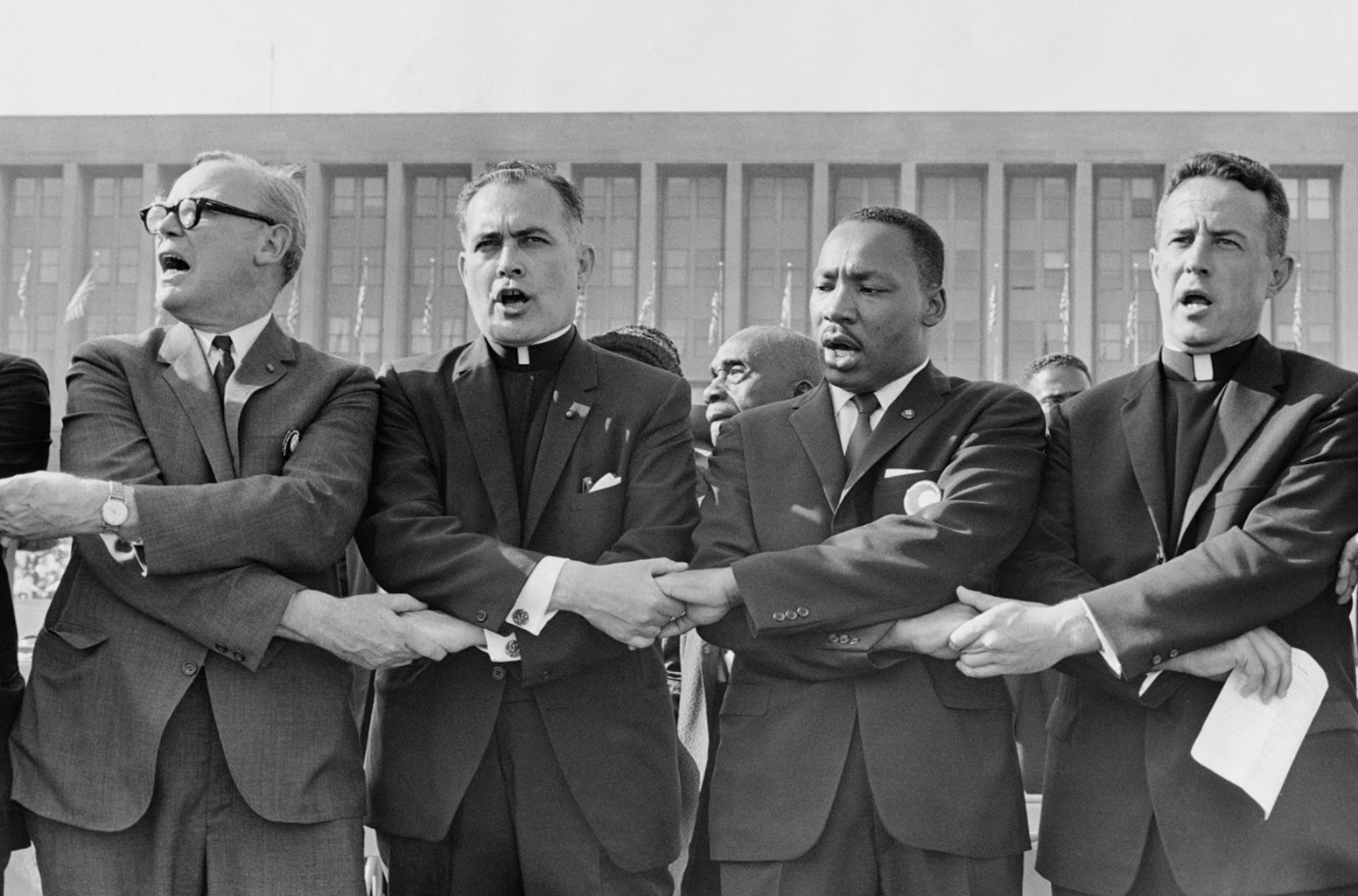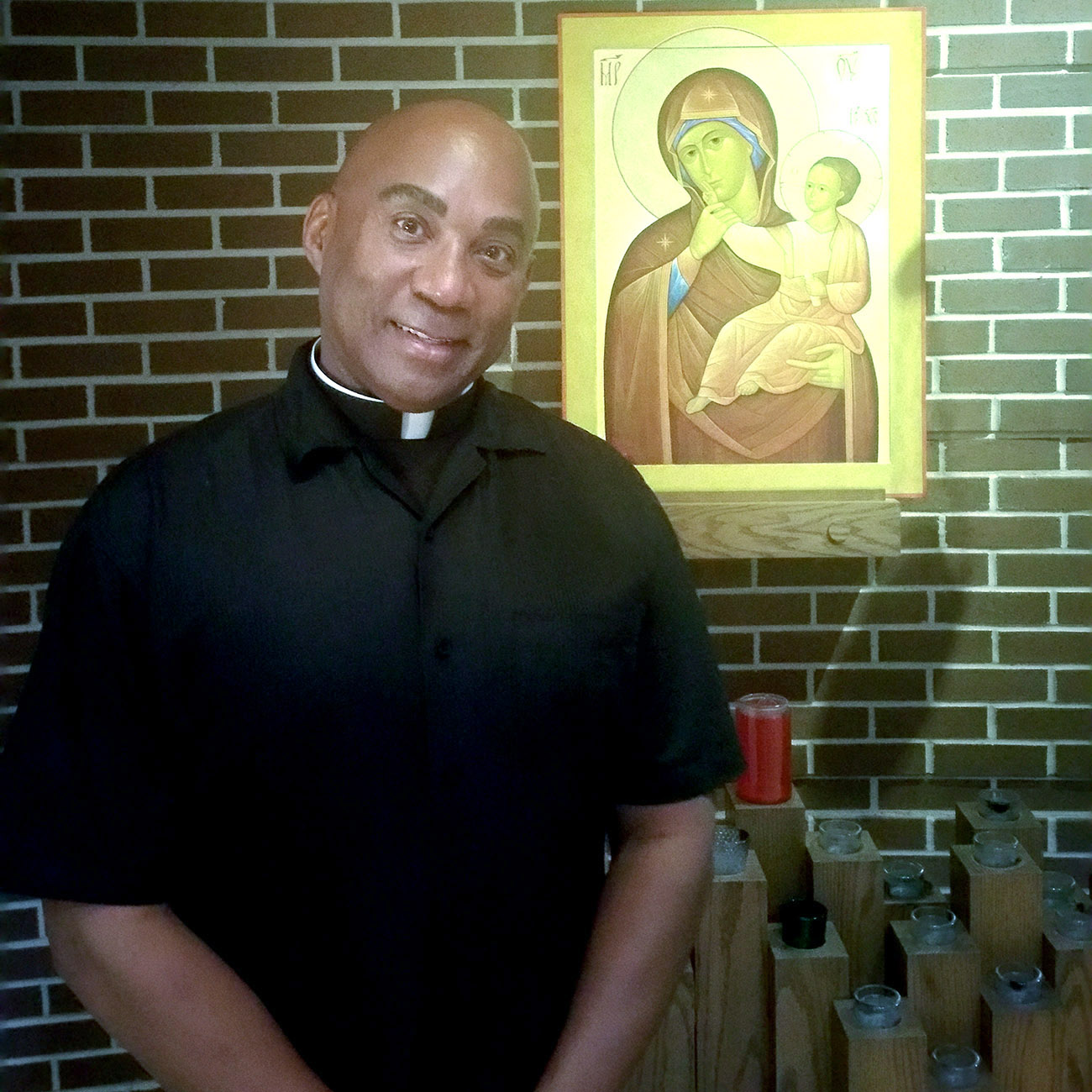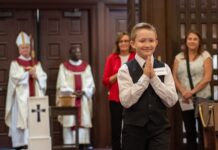
Annual
Martin Luther King, Jr., Mass3-6 p.m., Jan. 15
St. Mary’s Basilica, 231 N. Third St., Phoenix
The celebration begins at 3 p.m. with musical preludes. Mass begins at 4 p.m. and a reception follows at the Diocesan Pastoral Center next door.
CLICK HERE for more information
Fr. Royal (Roy) A. Lee, of the Archdiocese of Atlanta said as a visionary, Martin Luther King, Jr., could recognize the potential of America even in its brokenness.
“We need to pay attention to the signs of the times, just like Daniel. Daniel could read the signs and had a vision and King had a vision of uniting us — in a theological sense — through the struggle of death, pain and resurrection, what we know of as the Paschal Mystery,” Fr. Lee said. “King … was steeped in spirituality and in the weakness of America, King saw it would bring us to strength.”
Fr. Lee will be the guest homilist during the annual Martin Luther King, Jr., Mass with Bishop Thomas J. Olmsted Jan. 15 at St. Mary’s Basilica. The musical prelude begins at 3 p.m. Mass begins at 4 p.m. followed by a reception at the Diocesan Pastoral Center next door.
“Martin Luther King, Jr., is a reminder of where we’ve been, where we are and where we need to go,” he said. “He pricks the consciousness of the country; again because we are not there yet, we are getting there because of men like King who is our GPS, a navigation system.”
Fr. Lee, a priest, educator, former military chaplain and mission leader, revival preacher and presenter throughout the United States, earned a doctorate in education from Colorado State University.
He teaches homiletics for the archdiocese and is involved in homeless, street and jail ministry in the Atlanta area. Additionally, he is an adjunct professor for the University of St. Leo in Florida. Fr. Lee spoke with The Catholic Sun to discuss King’s legacy.

Sun: What is the state of Black Catholic ministry in the U.S. today?
Fr. Lee: Black Catholic ministry is in a state of decline. In the late ‘80s there was great excitement from many bishops and priests and lots of lay folks about an emerging Black Catholic Church. We don’t currently have that excitement in this country.
Sun: In light of racial issues reported on in the news today, what should the Church’s response be? How can the Church offer hope?
Fr. Lee: The Catholic Church’s response to racism should be what the Church’s prophetic response always is when the dignity of humanity is being dismissed. The Church is mandated to remind us of the non-negotiable matters of equality, justice and unity. The Church can offer hope by being the Church, not the politic, but the sacramental institution founded and formed to help each and all know that God’s children have to come together in order to build better things than we would build amongst our own and without God.
Sun: There are several Black American Catholics who have causes for canonization open. What is their legacy and what can we learn from them?
Fr. Lee: They inspire us to come together in order to do God’s will. That means we have to let go of the things and people who divide us and cling to the God who adds and multiplies.
Sun: In your mind, what is the spiritual legacy of Martin Luther King? Why should we as Catholics be concerned about a Baptist preacher?
Fr. Lee: We do not need to be concerned about a Baptist preacher. We should be concerned about a Baptist Christian. We should be concerned with a drum major for justice. We should be concerned about a historical figure who gave his life, so that others might live more abundantly. King’s message also echoed Catholic Social Teaching. That is the life and dignity of the human person, the call to family community and participation, rights and responsibilities, options for the poor and vulnerable, the dignity of work and the rights of workers, solidarity and care for God’s creation.
Sun: How can non-Black Catholics benefit from Martin Luther King or some of these Black American Catholics who have causes for canonization open?
Fr. Lee: Catholics can benefit from Dr. King by remembering that he was speaking on behalf of Catholics as well. If we ever become a better Church, especially in matters of race, justice and poverty, plenty of young Martins and Dr. Kings will benefit from our worship and work.






